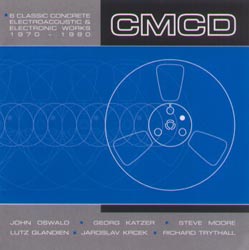
Out of Stock
Quantity in Basket: None
Log In to use our Wish List
Shipping Weight: 6.00 units
Sample The Album:
Alex Varty-guitar
Henry Kaiser-sampler
John Oswald-alto saxophone
Michael Vogt-tuba
Click an artist name above to see in-stock items for that artist.
UPC: 752725004329
Label: Recommended Records
Catalog ID: RER CMCD
Squidco Product Code: 856
Format: CD
Condition: New
Released: 1991
Country: Great Britain
Packaging: Jewel Tray
Track 3 was recorded in May 1989 at the Studio of the Academy of Art in Berlin, DE. Track 5 was recorded in 1970 at Supraphon Studio and Rudolphium in Prague, CZ.
Artist Biographies
• Show Bio for Alex Varty Alex Varty is a guitarist, vocalist, writer and producer, known for his work with John Oswald, Tim Ray, Henry Kaiser and Leo Smith. He's also written liner notes for albums by Evan Parker, Hans Reichel, Tom Cora and Jin Hi Kim. ^ Hide Bio for Alex Varty • Show Bio for Henry Kaiser "Henry Kaiser (born September 19, 1952) is an American guitarist and composer, known as an idiosyncratic soloist, a sideman, an ethnomusicologist, and a film score composer. Recording and performing prolifically in many styles of music, Kaiser is a fixture on the San Francisco Bay Area music scene. He is considered a member of the "second generation" of American free improvisers. He is married to Canadian artist Brandy Gale. In 1977, Kaiser founded Metalanguage Records with Larry Ochs (Rova Saxophone Quartet) and Greg Goodman. In 1979 he recorded With Friends Like These with Fred Frith, a collaboration that lasted for over 20 years. In 1983 they recorded Who Needs Enemies, and in 1987 the compilation album With Enemies Like These, Who Needs Friends? They joined with fellow experimental musicians John French, and English folk-rocker Richard Thompson to form French Frith Kaiser Thompson for two eclectic albums, Live, Love, Larf & Loaf (1987) and Invisible Means (1990). In 1999 Frith and Kaiser released Friends and Enemies, a compilation of their two Metalanguage albums along with additional material from 1984 and 1999. In 1991, Kaiser went to Madagascar with guitarist David Lindley. They recorded roots music with Malagasy musicians and discovered music that, he says, "changed us radically and permanently". Three volumes of this music were released by Shanachie under the title A World Out of Time. In 1994 he made a similar trip to Norway, again with Lindley, recording music that was released as Sweet Sunny North (2 volumes, 1994 and 1996). Since 1998, Kaiser has been collaborating with trumpeter Wadada Leo Smith in the "Yo Miles!" project, releasing a series of tributes to Miles Davis's 1970s electric music. This shifting aggregation has included musicians from the worlds of rock (guitarists Nels Cline, Mike Keneally and Chris Muir, drummer Steve Smith), jazz (saxophonists Greg Osby and John Tchicai), avant-garde (keyboardist John Medeski, guitarist Elliott Sharp), and Indian classical music (tabla player Zakir Hussain). Kaiser has appeared on more than 250 albums and scored dozens of TV shows and films, including Werner Herzog's Encounters at the End of the World (2007). He was given a Grammy Award for his work on the Beautiful Dreamer tribute to Stephen Foster. In 2001, Kaiser spent two and a half months in Antarctica on a National Science Foundation Antarctic Artists and Writers Program grant. He has subsequently returned for nine more visits to work as a research diver. His underwater camera work was featured in two Herzog films, The Wild Blue Yonder (2005) and Encounters at the End of the World (2007), which he also produced, and for which he and Lindley composed the score. Kaiser served as music producer for Herzog's Grizzly Man (2005). He was nominated for an Academy Award for his work as a producer on Encounters at the End of the World." ^ Hide Bio for Henry Kaiser • Show Bio for John Oswald "John Oswald (born May 30, 1953 in Kitchener, Ontario) is a Canadian composer, saxophonist, media artist and dancer. His best known project is Plunderphonics, the practice of making new music out of previously existing recordings (see sound collage and musical montage). Oswald coined the term "plunderphonics" to describe his craft in a paper called "Plunderphonics, or Audio Piracy as a Compositional Prerogative" which he presented at the Wired Society Electro-Acoustic Conference in Toronto in 1985. Inspired by William S. Burroughs' cut-up technique, Oswald had been devising plunderphonic-style compositions since the late 1960s. In an interview with Norman Igma following the release of the Plunderphonics EP in 1988, he described the concept as follows: A plunderphone is a recognizable sonic quote, using the actual sound of something familiar which has already been recorded. Whistling a bar of "Density 21.5" is a traditional musical quote. Taking Madonna singing "Like a Virgin" and rerecording it backwards or slower is plunderphonics, as long as you can reasonably recognize the source. The plundering has to be blatant though. There's a lot of samplepocketing, parroting, plagiarism and tune thievery going on these days which is not what we're doing. Plunderphonics is related to but distinct from sampling used in genres such as hip-hop. His 1975 track "Power" married frenetic Led Zeppelin guitars to the impassioned exhortations of a Southern US evangelist years before hip hop discovered the potency of the same (and related) ingredients. Similarly, his 1990 track "Vane", which pitted two different versions of the song "You're So Vain" (the Carly Simon original and a cover by Faster Pussycat) against each other, was a blueprint for the contemporary pop subgenre, 'glitch pop' or 'mashup (music)'. In 1980, Oswald founded the Mystery Tapes Laboratory, which created unnamed, unattributed works on cassette, described on the plunderphonics website as "little boxes of sonifericity specifically formulated for the curious listener. Available in your choice of aural flavors: subliminal, blasted, excerpted, repeatpeateatattttttedly, these cinemaphonically-concocted aggregates of très different but exquisitely manifest, unprecedentedly varied festerings of audio quality fine magnetic cassette tapes are the best of whatever you've been listening for". Oswald continues to be Director of Research at Mystery Tapes. His greatest source of controversy was the 1988 release of the Plunderphonics EP, which he distributed to the press and to radio stations. It contained four plundered tracks: "Don't" by Elvis Presley which included piano accompaniment by Bob Wiseman, "Pocket" by Count Basie, a version of Dolly Parton singing "The Great Pretender" in which "she gets to sing a duet with himself(sic)", and "Spring", a version of Igor Stravinsky's The Rite of Spring. In 1989, Oswald released an expanded version of the Plunderphonics album containing twenty-five tracks, each using material from a different artist. In 1990, notice was given to Oswald by the Canadian Recording Industry Association on behalf of several of their clients (notably Michael Jackson, whose song "Bad" had been cut up, layered, and rearranged as "Dab") that all undistributed copies of Plunderphonics be destroyed under threat of legal action. An excerpt from a press release on the plunderphonics website is repeated below: "I wasn't selling the disc in the stores, so I let listeners tape it off the radio for free," explains Oswald, who paid for the production and manufacture of the CD out of his own pocket. He receives no royalties or financial compensation for airplay. Brian Robertson, president of CRIA says, ``What this demonstrates is the vulnerability of the recording industry to new technology...All we see is just another example of theft." Oswald received notice from CRIA's lawyers demanding that he cease distributing Plunderphonic as of Xmas eve '89. "They insisted I quit playing Santa Claus," Oswald observes. In 1993 Oswald released Plexure. Arguably his most ambitious composition to date, it attempted to microsample the history of CD music up to that point (1982-1992) in a 20 minute collage of bewildering complexity. The ambition of this piece would later be recalled by the British bootlegger Osymyso, whose "Intro-Inspection" emulates the pop-junkie feel of Plexure. From 1993-1996, Oswald worked on and released Grayfolded, a 2-Disc set commissioned by the Grateful Dead consisting of pieces created from over 100 performances of the song "Dark Star". Oswald initially created and released disc 1, "Transitive Axis", which contains a 59 minute 59 second work in 9 movements. Feeling that there was more territory to explore, Oswald worked on disc 2, Mirror Ashes, which is a composition in "6*" movements. Once both discs were complete they were packaged together with extensive liner notes and a "visual time map" of the sources used in the compositions. Grayfolded was selected the #1 international recording of the decade by the Toronto Sun. In addition to his extensive work in "plunderphonics", Oswald is also involved with acoustic music, as a composer and improviser. His compositions for orchestra often do include electronic elements, such as Concerto for Wired Conductor and Orchestra (?), but has also composed for acoustic ensembles, such as Acupuncture (1991). Oswald improvises with the saxophone, and is a member of free improvisation group CCMC. Oswald is also actively involved in dance, as a composer for dance works, as a collaborator with choreographers, and as an active Contact Improviser. Oswald founded the record label fony, which produced the retrospective box set 69 plunderphonics 96 (a.k.a. Plunderphonics 69/96) and reissued Grayfolded. The label also rereleased Plexure and released Aparanthesi, a work which uses the single note A in an experiment with timbre, dynamics, and layering, on CD in 2003. Since 2000 Oswald has as active in exhibiting his visual art as in continuing his musical activities. In 2004, Oswald was one of six artists to win the annual Governor General's Awards in Visual and Media Arts, as awarded by the Canada Council for the Arts, for lifetime achievement." ^ Hide Bio for John Oswald
7/1/2025
Have a better biography or biography source? Please Contact Us so that we can update this biography.
7/1/2025
Have a better biography or biography source? Please Contact Us so that we can update this biography.
7/1/2025
Have a better biography or biography source? Please Contact Us so that we can update this biography.
Track Listing:
Alex Varty-guitar
Henry Kaiser-sampler
John Oswald-alto saxophone
Michael Vogt-tuba
Recommended Records
Electro-Acoustic
Organized Sound and Sample Based Music
December 2006
Instant Rewards
Search for other titles on the label:
Recommended Records.





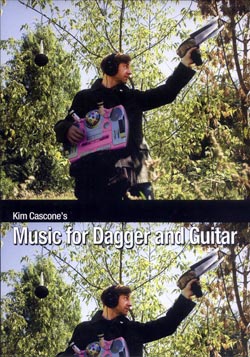
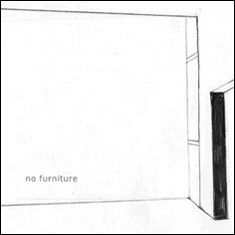
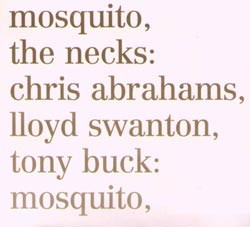
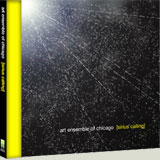
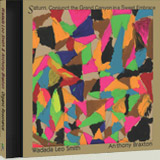
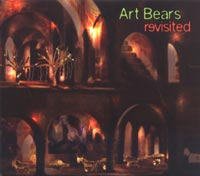
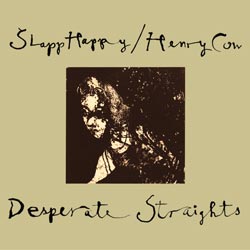

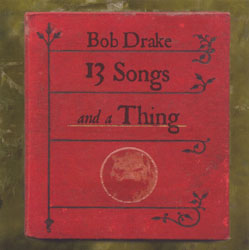
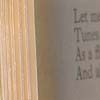
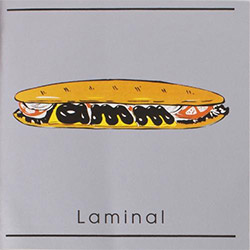
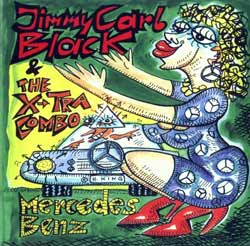
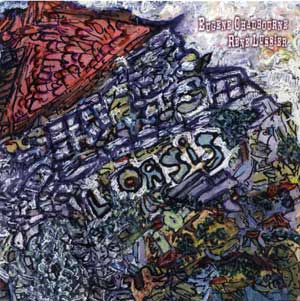
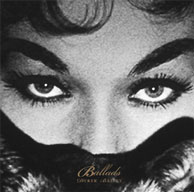
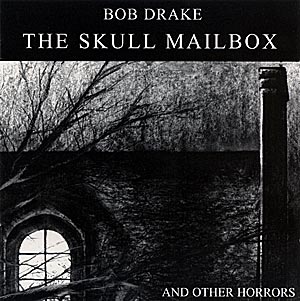

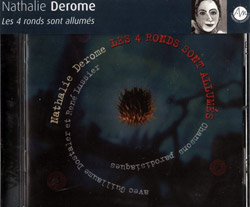
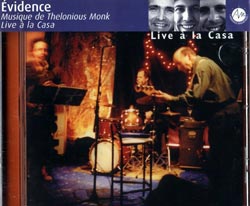
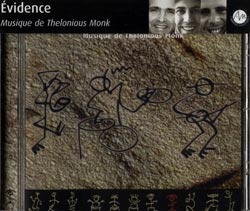










![Deupree, Jerome / Sylvie Courvoisier / Lester St. Louis / Joe Morris: Canyon [2 CDs]](https://www.teuthida.com/productImages/misc4/36404.jpg)


![Eternities: Rides Again [CASSETTE]](https://www.teuthida.com/productImages/misc4/36247.jpg)

![Lopez, Francisco: Untitled (2021-2022) [2 CDs]](https://www.teuthida.com/productImages/misc4/36438.jpg)




![Eventless Plot | Haarvol: The Subliminal Paths [CASSETTE + DOWNLOAD]](https://www.teuthida.com/productImages/misc4/36232.jpg)












![Eventless Plot | Francesco Covarino: Methexis [CASSETTE + DOWNLOAD]](https://www.teuthida.com/productImages/misc4/36231.jpg)



![Das B (Mazen Kerbaj / Mike Majkowski / Magda Mayas / Tony Buck): Love [VINYL]](https://www.teuthida.com/productImages/misc4/36329.jpg)



![Hemphill Stringtet, The: Plays the Music of Julius Hemphill [VINYL]](https://www.teuthida.com/productImages/misc4/36409.jpg)



![Halvorson, Mary Septet: Illusionary Sea [2 LPS]](https://www.teuthida.com/productImages/misc4/17952.jpg)






![Money : Money 2 [2 CDs]](https://www.teuthida.com/productImages/misc4/35894.jpg)




![Klinga, Erik: Elusive Shimmer [VINYL]](https://www.teuthida.com/productImages/misc4/36258.jpg)
![CHANGES TO blind (Phil Zampino): Volume 9 - I Wave on a Fine Vile Mist [CD + DOWNLOAD]](https://www.teuthida.com/productImages/misc4/36061.jpg)

![Wallmart / Rubbish: Asset Protection [split CD]](https://www.teuthida.com/productImages/misc4/35900.jpg)


![+Dog+: The Family Music Book Vol. 5 [2 CDs]](https://www.teuthida.com/productImages/misc4/35897.jpg)
![Kuvveti, Deli : Kuslar Soyledi [CASSETTE w/ DOWNLOAD]](https://www.teuthida.com/productImages/misc4/36107.jpg)

![Nakayama, Tetsuya: Edo Wan [CASSETTE w/ DOWNLOAD]](https://www.teuthida.com/productImages/misc4/36105.jpg)




![Yiyuan, Liang / Li Daiguo: Sonic Talismans [VINYL]](https://www.teuthida.com/productImages/misc4/35957.jpg)
![Brown, Dan / Dan Reynolds: Live At The Grange Hall [unauthorized][CASSETTE]](https://www.teuthida.com/productImages/misc4/36245.jpg)








![Palestine, Charlemagne / Seppe Gebruers: Beyondddddd The Notessssss [VINYL]](https://www.teuthida.com/productImages/misc4/36206.jpg)
![Palestine, Charlemagne / Seppe Gebruers: Beyondddddd The Notessssss [NEON GREEN VINYL]](https://www.teuthida.com/productImages/misc4/36207.jpg)

![Laubrock, Ingrid: Purposing The Air [2 CDs]](https://www.teuthida.com/productImages/misc4/35639.jpg)

![Yoko, Ono / The Great Learning Orchestra: Selected Recordings From Grapefruit [2 CDs]](https://www.teuthida.com/productImages/misc4/35841.jpg)









![Zorn, John / JACK Quartet: The Complete String Quartets [2 CDs]](https://www.teuthida.com/productImages/misc4/35609.jpg)

![Lonsdale, Eden: Dawnings [2 CDs]](https://www.teuthida.com/productImages/misc4/35480.jpg)



![Sorry For Laughing (G. Whitlow / M. Bates / Dave-Id / E. Ka-Spel): Rain Flowers [2 CDS]](https://www.teuthida.com/productImages/misc4/35985.jpg)

![Rolando, Tommaso / Andy Moor : Biscotti [CASSETTE w/ DOWNLOADS]](https://www.teuthida.com/productImages/misc4/36106.jpg)


![Electric Bird Noise / Derek Roddy: 8-10-22 [CD EP]](https://www.teuthida.com/productImages/misc4/35970.jpg)








![Elephant9 : Mythical River [VINYL]](https://www.teuthida.com/productImages/misc4/34624.jpg)



![Elephant9 with Terje Rypdal: Catching Fire [VINYL 2 LPs]](https://www.teuthida.com/productImages/misc4/35355.jpg)
![Deerlady (Obomsawin, Mali / Magdalena Abrego): Greatest Hits [VINYL]](https://www.teuthida.com/productImages/misc4/34876.jpg)







![Surplus 1980: Illusion of Consistency [CD]](https://www.teuthida.com/productImages/misc4/35069.jpg)
![Staiano, Moe: Away Towards the Light [VINYL + DOWNLOAD]](https://www.teuthida.com/productImages/misc4/35037.jpg)
![Coley, Byron: Dating Tips for Touring Bands [VINYL]](https://www.teuthida.com/productImages/misc4/17906.jpg)

![Lost Kisses: My Life is Sad & Funny [DVD]](https://www.teuthida.com/productImages/misc4/lostKissesDVD.jpg)